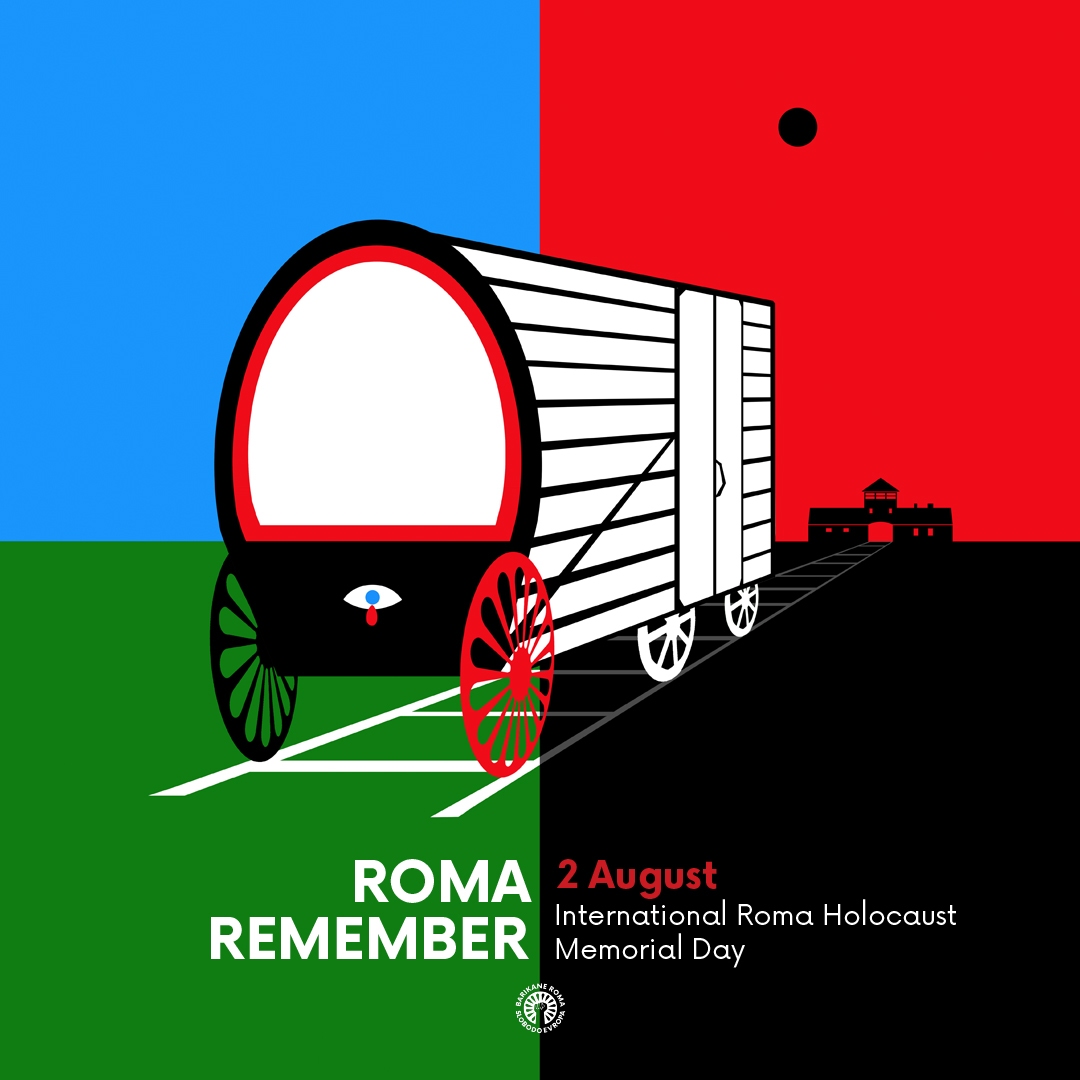The Council of Europe Commissioner for Human Rights, Dunja Mijatović, has urged all states to remember the hundreds of thousands of Roma lives lost during World War II: "The lack of education about the past and present of Roma has led to a situation where they are still victims of hatred, violence, and pervasive discrimination daily. In several
Council of Europe member states, many Roma still lack access to basic services such as healthcare, adequate housing, and education. This has been brought to the fore in recent times, including in the context of the war in Ukraine and the COVID-19 pandemic"
The Roma, like Jews, were deemed "racially inferior" by the Nazis and subjected to extensive persecution and genocide under Hitler's regime. The exact number of Roma victims of the Nazis remains unknown, but historians estimate that at least 250,000 European Roma were killed during World War II, with some scholars suggesting the death toll could be as high as 500,000. The Roma Holocaust is a dark chapter in history that is often overlooked. Knowledge of the history and culture of Roma remains marginal among European societies, leading to continued discrimination and social exclusion. Many Roma still lack access to basic services such as healthcare, adequate housing, and education. This lack of education about the past and present of Roma has led to a situation where they are still victims of hatred, violence, and pervasive discrimination daily.
"The gruesome history of the Holocaust demands us to shape and implement a comprehensive system of protection against discrimination which enables the respect of human dignity and fundamental rights for everyone in the European Union. This is why the Commission once again calls on all Member States to commit to our EU Roma Strategic Framework for equality, inclusion, and participation" Ursula von der Leyen, President of the European Commission, Věra Jourová, Vice-President for Values and Transparency, and Helena Dalli, Commissioner for Equality
said in a common statement.
In 2015, the European Parliament established the 2nd of August as European Roma Holocaust Memorial Day to honor the 500,000 European Roma killed in Nazi-occupied Europe, who constituted at least a quarter of the overall population at the time. As part of the EU Roma Strategic Framework, approved in 2020, and the Council Recommendation on Roma, the European Commission and EU Member States have pledged to work against antigypsyism. The framework establishes a three-pillar strategy that includes equality with all other members of society, social and economic inclusion, and involvement in political, social, economic, and cultural life. On January 9, 2023, the first evaluation report of the Member States' National Roma Strategic Frameworks was adopted.
However, the full extent of the suffering of the Roma people in the Holocaust is still not fully documented. In Croatia, for instance, the Independent State of Croatia (NDH)
adopted racial laws based on Nazi legislation in April 1941, which led to the targeting of Jews, Roma, and others considered to be ‘non-Aryans’. Detentions of Roma people began in July 1941, and many were deported to the Jasenovac concentration camp where thousands died. The persecution of the Roma people under the NDH regime in Croatia has still not been fully investigated. The head of the Romani community in Germany,
Romani Rose, has called on the European Union to outlaw racism against gypsies — known as “antiziganism” — alongside antisemitism. This call comes in response to the rise in right-wing extremism and violence against Sinti and Roma, Jews, and other minorities.








